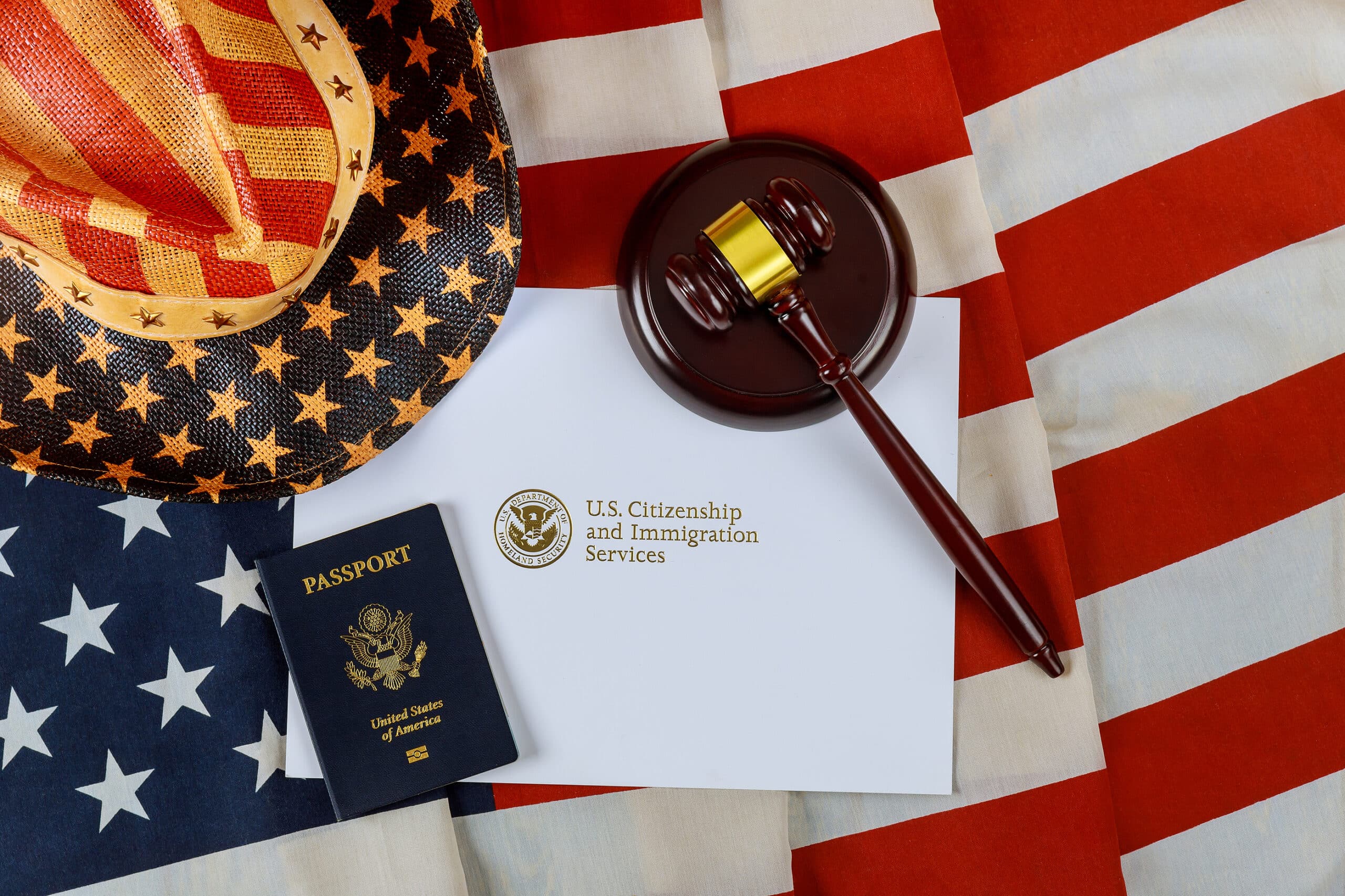When Are You Allowed to Return to the United States of America After You’ve Been Deported?
Many individuals and their families around the world come to the United States of America with hopes and dreams of starting a new life in this country. The U.S. has long prided itself in welcoming immigrants. Our beacon of the American Dream, the Statue of Liberty, states Emma Lazarus’s 1883 poem, “Give me your tired, your poor, your huddled masses yearning to breathe free.” And, for many immigrants, this land does represent opportunity and a fresh start.
Yet, the U.S. can seem unforgiving to immigration hopefuls arriving at its borders and shores. Whether you read stories of ICE detention camps or the statistics for forceful deportations, many of those who come to America looking for a better life are struck by the harsh realities of a flawed, frustrating, restrictive, less forgiving, and sometimes cruel immigration system.
Once the U.S. government has deported or summarily removed individuals, loved ones may face a mandatory waiting period before they are allowed just to file for permission to re-enter into the country. Some may be indefinitely or permanently barred from lawful admission. During this time, they may live wherever they can, but they cannot cross the border into the United States. Otherwise, they can risk more harsh and indefinite penalties.
Each individual’s specific waiting period depends upon their particular circumstances. The shortest waiting period is often five years, the most common is ten years, some may face 20 years, and others may even be subject to an indefinite or even permanent removal from the U.S. Some may complete voluntary departure at a U.S. consulate or embassy, but may still have to wait to file for waivers sometimes referred to as pardons.
Which Deportees, that is Aliens or Respondents, Face a Five-Year Ban from the U.S.?
Those who arrived in the U.S. at an official port of entry but were removed because they were deemed to be ‘inadmissible’ for not having the correct visa ‘may’ be hit with a five-year ban from the country. Other reasons for a five-year ban include those who have undergone official removal proceedings after entering the U.S. without a visa. Also, some of those who file for asylum, in good faith, but fail to complete the voluntary departure process. Some who fail to appear at immigration court hearings or depart those hearings prematurely may receive a five-year ban. There may be financial penalties imposed for not departing, as well.
Who Might Face a Ten-Year Ban from Returning to the U.S.?
Ten-year bans are typically reserved for those who an immigration judge orders the deportation of in court, regardless of whether the respondent appeared in court or not. Ten-year bans are the most common for deportees, who are called “respondents” in Immigration Court.
What Could a Deportee Have Done to Be Punished with a Twenty-Year Ban from the U.S.?
20-year bans are an extreme reserved only for those who commit extra wrongs in the eyes of the law. If an immigrant is removed from the U.S. and does not wait out the entirety of their ban, they may receive a 20-year ban from the country as a penalty for reentering the country too early.
If you have received other orders of removal in the past, your next deportation order could come with a 20-year ban. Additionally, you may be barred from reentry into the U.S. for 20 years if you were convicted of a felony during your time in the U.S.
Is an Indefinite Ban a Possibility?
Indefinite bans are reserved for those who make material misrepresentations of fact. That is, a person lied to a DHS Official, such as a CBP or USCIS Officer, which is considered a tribunal. A tribunal hearing is considered to be a consular interview, port of entry, pre-board inspection, U.S.C.I.S. interview, or other stop where a person is considered to be under oath to tell the truth. There is a waiver of the indefinite bar on admission. However, the application must not only be filed, the U.S.C.I.S. must agree that a U.S. citizen or lawful permanent resident spouse or parent will suffer extreme hardship as a matter of law and discretion. A balancing test of the applicant’s equities ‘may also be’ a consideration in the decision. If a waiver is not approved, then the ban remains.
Is Permanent Removal a Possibility?
You could be removed from the U.S. and permanently banned from returning. While an aggravated felony conviction could result in a 20-year ban from the U.S., it could just as easily result in a permanent ban. Permanent removals are also struck down on those who illegally reenter the U.S. within a year of their deportation.
What Are Your Legal Options for Returning to the U.S. After Forceful Deportation?
You must respect your deportation order and not attempt to reenter the U.S. before your ban period is complete. However, that does not mean that you need to sit on your hands and do nothing while waiting for the ban to expire. Various options are available to you, depending on the length of your deportation orders.
It’s not easy to overturn or reverse deportation orders. The official removal of an individual from the U.S. will follow them, delay, and hurt their chances of reapplying for entry into the country. In many cases, attempts to reenter the U.S. require starting over the application process from square one with a minimum ten year wait upon leaving.
Your first step should be to file a well documented Form I-212, a waiver that may legally forgive your removal, thus allowing you to eventually reenter the country with a visa. This waiver is typically only granted to those who were deemed inadmissible at the time of their original entry or to those who voluntarily left the country after being threatened with removal. Those with felony convictions are unable to successfully seek a Form I-212.
While the I-212 is all important, there is other permission that you need. An applicant for admission usually requires some form of visa sponsorship in order to be eligible to apply for a green card or visa.
Before taking any of these steps, it is crucial that you speak with a legal professional for guidance. Filing an application before you are allowed to do so may be a waste of time, money, or, worse, it may actually reflect poorly on your chances and create confusion. Experienced immigration lawyers are well-suited to assist you through this complicated legal process. While every case is unique, your attorneys should have a firm understanding of the laws and the constantly changing regulations and procedures surrounding your immigration case.
With a bit of patience, dedication, and persistence, you may be able to return to the U.S. after you experience deportation.


 312-728-4610
312-728-4610
 Call Us Now
Call Us Now




